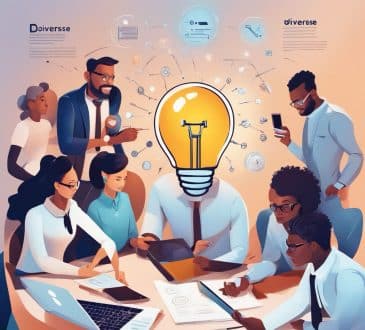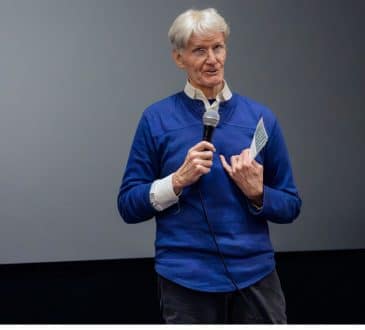Reinventing the CEO

The employer-employee relationship has undergone a dramatic turn during the pandemic. Organizations are struggling to retain top talent, which is largely triggered by the Great Resignation as top candidates want to work on their own terms.
While employees are aspiring to work for a purpose-led organization, and want to add value to the organization as well as to their own professional careers, the ever-evolving technology is widening the skill gap and is creating a high skill demand.
The role of the CEO has become far more challenging, they need to reinvent their talent strategy that focuses on elevating the level of engagement with the hybrid workforce by building a culture of innovation that will not help boost employee satisfaction and retention by and making them feel proud of what they do and the value they bring to the overall community.
As I began writing this, was not sure; how do I approach the Topic such that it remains relevant to you and at the same time holds your interest. So, the best way is to talk of relationships. All of us are exposed to multiple relationships in our lives, which we are handling – Son, Daughter, Boyfriend, girlfriend or just friends etc. I would say an employer and employee relationship should also be categorized as such into one of the other critical and important life’s relationships.

Everyone in their lives must handle this aspect – either as the person employing someone or being employed somewhere. Like in every sphere of life businesses felt the impact of the pandemic in the last couple of years and in some industries, it triggered a new way of looking and handling things. Many made changes in their models including Hybrid way of working and adapting technology in a bigger way. It hastened up some thinking and ideas which were languishing in the sidelines and made obsolete some old methods of working and thinking.
We saw some job losses and now with the bounce back certain industries are facing talent crunch. Our Company GI benefitted from the situation and doubled ourselves in the last 18 months.
There were great learnings from these, some which I had not learnt or experienced in my two decades of professional life earlier. The ability to hold onto talent, make yourself relevant to their aspiration and create a culture which helps boost the job satisfaction and ability to visualize growth.
We could bucket ourselves into a few good areas of differentiation:
Flexibility: We were flexible and for any organization which is flexible to the external environment and employee and customer needs, it becomes easier for the company and its people to adapt and grow. We could see this coming through – Hybrid model, automation of our performance monitoring systems, employee engagement activities, feeling of being connected, trainings – In fact because people saved time commuting, they were able to work flexibly and with more focus
Solution mindset: As an entrepreneur and leader, this is the trait in any individual which I always look at while hiring. While technical and management skills are considered critical, in my view a team member who can look at problems critically and provide solutions will be the most valuable addition to any team. This also will happen when you give the team member the flexibility to try and fail.
If failure is not handled well or new solutions are not encouraged, you will not have people coming forward to provide solutions. This is very critical which I learnt very early in my career and hence at GI, I make it a point to inform every member and assure them to provide solutions and not be worried if things do not work out for them.

Adaptability: As an outcome of the above two points, the organization must inculcate a culture of adaptability.
With each experience in our life, we change and changes or learning should lead to a new way of thinking and doing things. Sooner or later, you need to adapt to the changes, the later you are on it, the more you lose out on the first mover benefits. It is not necessary that we need to incorporate all changes blindly, but anything which is progressive or moves us ahead should be focused on and should be part of the growth strategies.
Nearly 50% of the companies CEO and leadership time should be focused in growth. Many a times companies’ top leadership is forced to spend more time in operational nitty gritty and firefighting and with my experience I have noticed the company growth stagnate during this phase. The better the company is in creating a sturdy 2–3-year Vision and Mission, which is well percolated to its teams, the far better the chances of employees being motivated and working towards common goals.
This is easier said than done and is something which a simple email or town hall will not address. this is something which needs to be reiterated again and again, till it is a way of life for all.
Providing Tools to its resources: If our teams and resources need to be integrated and perform to our expectations, its critical to provide them with the tools – which are the skill sets, competencies, and trainings for delivering the client expectations. While each company has its training team and training calendar, the best training is when clarity is received from peers or friends or other team members.
GI started a mentorship program, which saw a good response as working with their own teams and being exposed to their styles of working, problem solving techniques helped new joiners to gain immensely and fast forward their productivity. Having a mentor or buddy at work, opens many doors for the new joinee and makes them confident to work towards achieving goals.
Innovation: While innovation seems like a more scientific word to use as it throws up images of some big invention which is game changing. Innovation in a good organization consists of quick wins, of smarter and more efficient ways of doing things. Companies have people and each one has the capability of coming up with new ideas provided they are encouraged. If the culture does not reward or acknowledge ideas and innovations, it is very unlikely, we will have our teams spend energies on it.
The innovations-based culture also helps team members in gaining joys of working in a company beyond the normal compensation and promotion culture. Its like a science experiment in the school, when you are asked to mix two compounds and you see the colour change etc. Maybe the experiment was not critical to your result or percentage, but they joy in seeing the colour change on mixing the two different chemicals in front of your own eyes was something which excites you and makes it memorable. A company which has more people engaged will find more talent retained.
The CEO’s challenge remains and has remained in every decade and I would take these as changes and challenges which we need to adapt and propel ourselves going forward. Talent will always find its way to you, if they find joy in what they do. Continuous engagement, coupled with a cool and flexible working environment will also make talent work and stay longer as they co create your and the companies’ dreams.
Written by Vikas Chadha.
Have you read?
Developing SaMD products— 4 factors to consider.
Medium-sized business CEOs: make life easier with new software.
CEO Spotlight: Alona Shevtsova has been listed among the TOP 50 most influential women in fintech.
What Every CEO Needs to Understand About Status Quo Bias by Nicci Nesmith Hammerel.
The Power of Listening to what’s NOT said by Oscar Trimboli.
Bring the best of the CEOWORLD magazine's global journalism to audiences in the United States and around the world. - Add CEOWORLD magazine to your Google News feed.
Follow CEOWORLD magazine headlines on: Google News, LinkedIn, Twitter, and Facebook.
Copyright 2025 The CEOWORLD magazine. All rights reserved. This material (and any extract from it) must not be copied, redistributed or placed on any website, without CEOWORLD magazine' prior written consent. For media queries, please contact: info@ceoworld.biz








